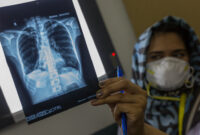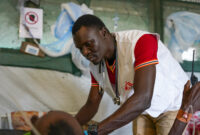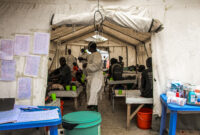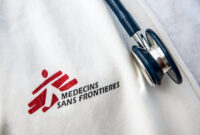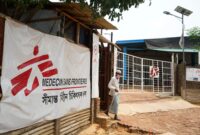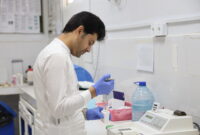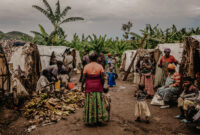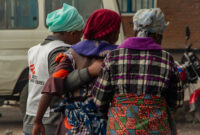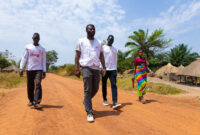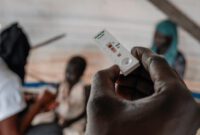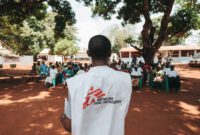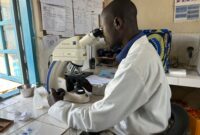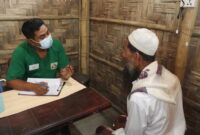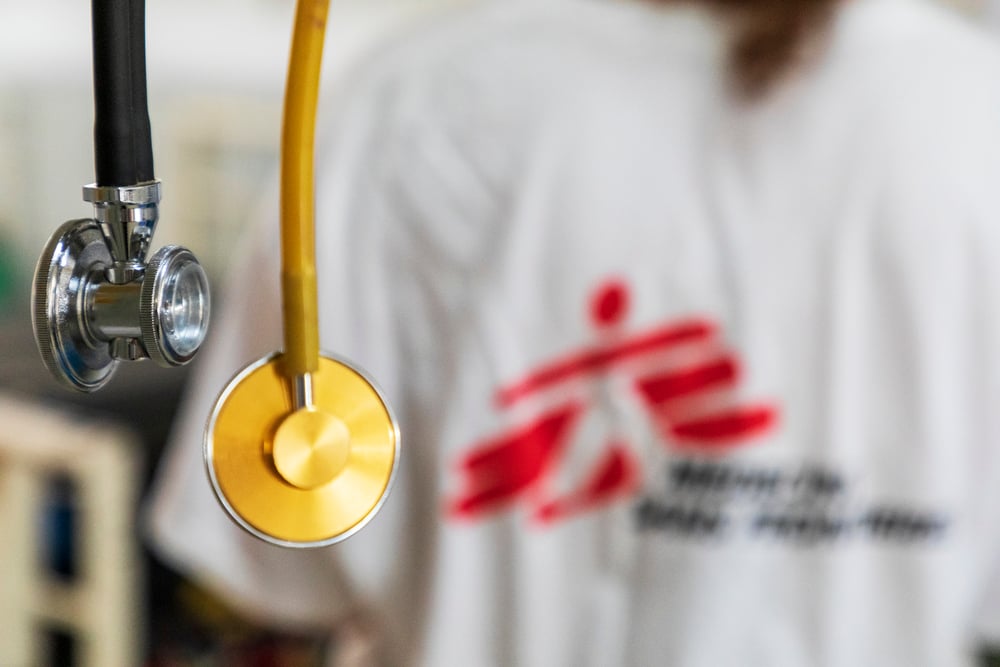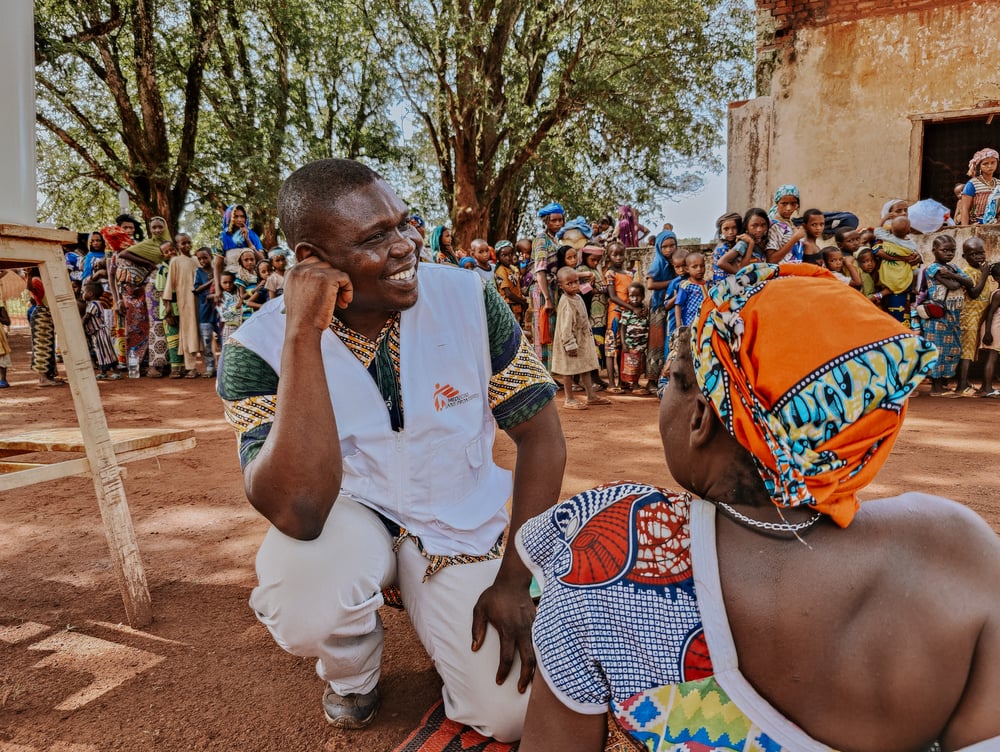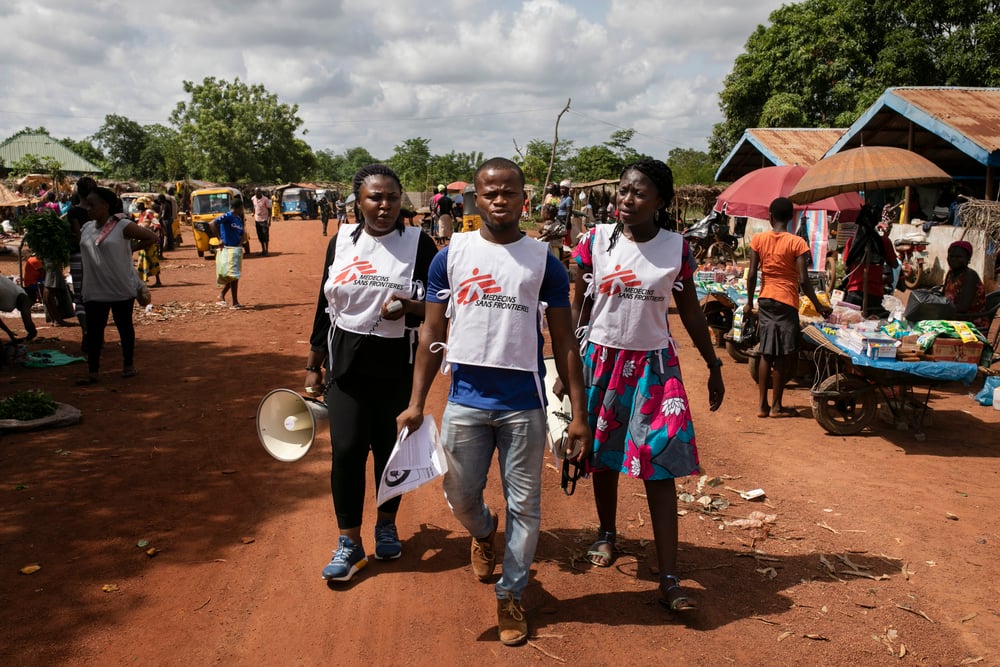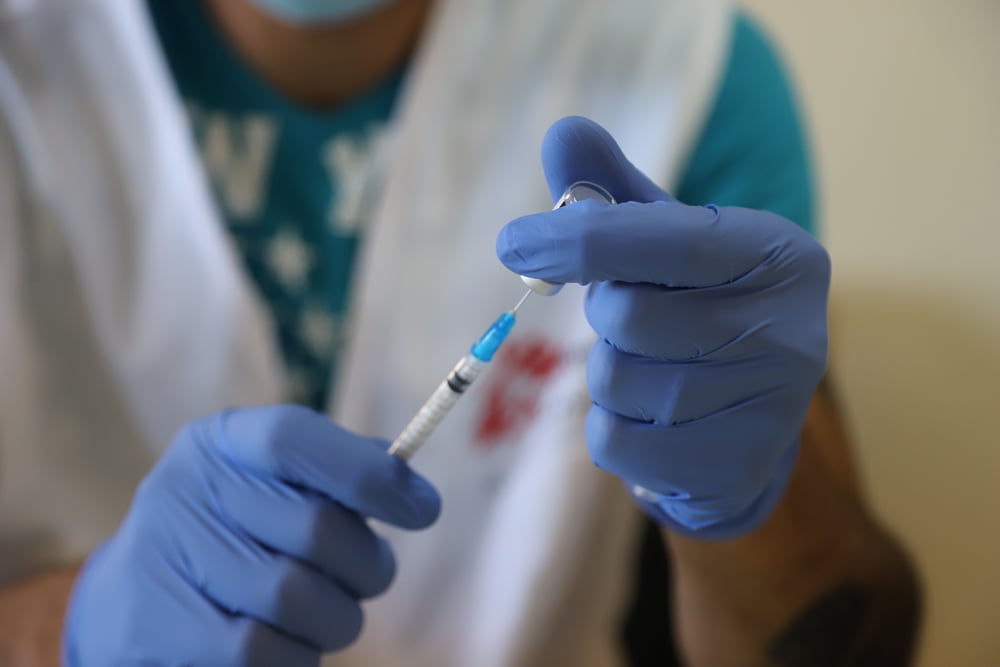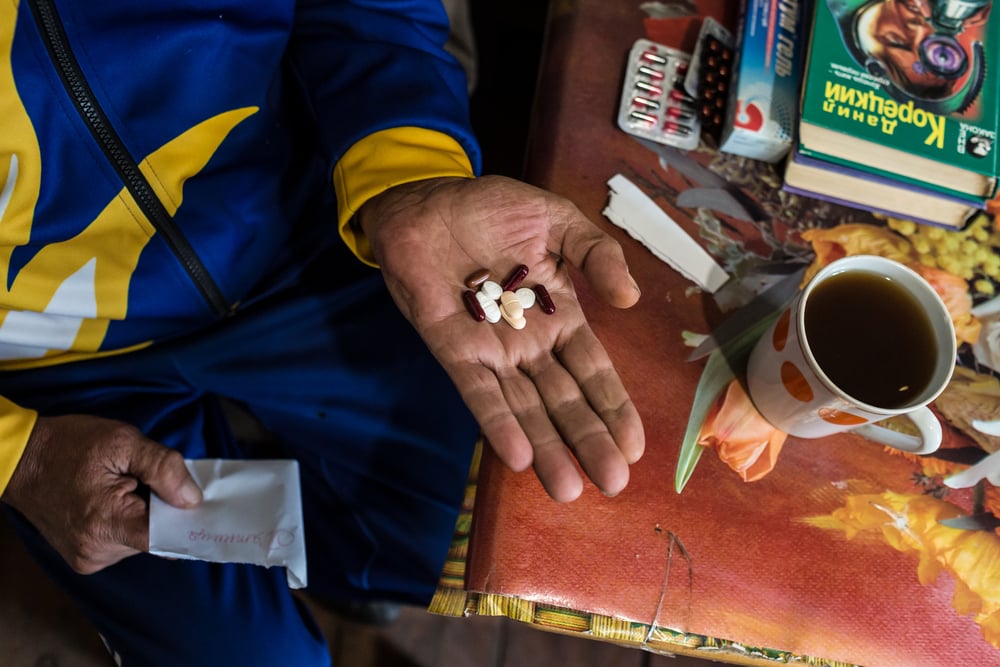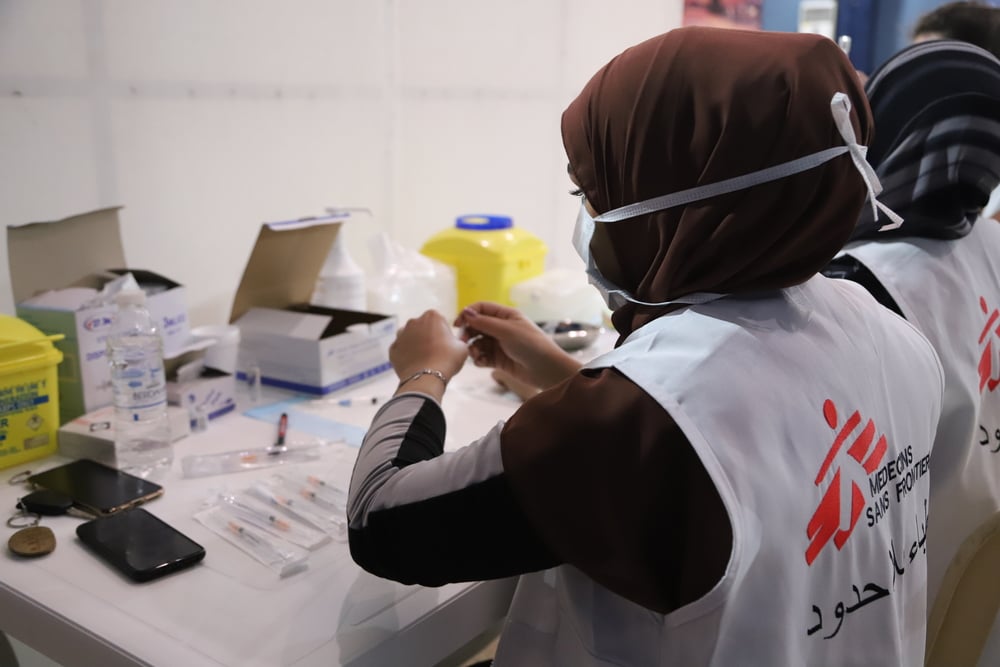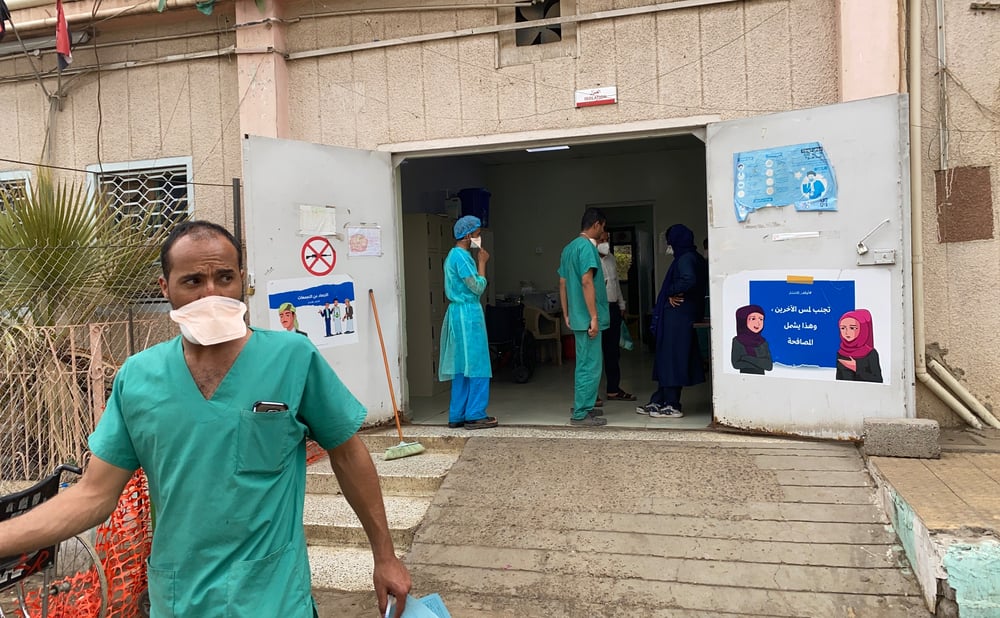Why Canada can and must step up to help end the HIV, TB and malaria epidemics worldwide
By Jason Nickerson, MSF’s Humanitarian Representative to Canada
The past two and a half years have made Canadians and others around the world much more aware of the challenges and necessity of responding to global health emergencies. But even as the world rightly focuses on ending the COVID-19 pandemic, ongoing epidemics of HIV, Tuberculosis (TB) and malaria continue to heavily impact people around the world, and to cause high numbers of deaths, without receiving anywhere near the same level of international attention.
The fight against HIV, TB and malaria is an urgent global public health priority, which is why strategies with specific and time-bound targets have been agreed upon by member states of the World Health Organization (WHO) to end these epidemics by 2030. But experts have been warning for several years that these efforts are falling off-track. The COVID-19 pandemic has also made things significantly worse, focusing attention and resources elsewhere. The impact of this step backward has been huge, with tuberculosis deaths rising for the first time in more than a decade, and with many HIV prevention and treatment programs disrupted around the world.
Now is the time to act
If we are to end the HIV, TB and malaria epidemics around the world, we must scale up funding for all forms of intervention – preventive measures, diagnostics, treatments and surveillance – while also continuing to explore innovation and expanding research. That is why the upcoming Global Fund replenishment conference, taking place in the United States this fall, is happening at a critical moment. The Global Fund is the primary funding mechanism for the world’s collective response to HIV, TB and malaria, the three diseases it was created specifically to fight. It is through the Global Fund that most governments, including Canada’s, invest in efforts to meet the 2030 targets to end these epidemics, and it is those investments that drive much of the HIV, TB and malaria programming in places worldwide.
It came as a surprise to many that Canada did not announce its contribution to the Global Fund’s replenishment while Montreal was playing host to the International AIDS Conference in late July and early August, a moment when Canada, and its global HIV response, was clearly in the spotlight. As a country with a seat at the decision-making table – Canada sits on the board of the Global Fund, the World Health Organization Executive Board, and other prominent global health organizations – and a stated willingness to do more to respond to global public health problems, Canada can, and should, continue to push for well-funded and more impactful programs to meet people’s health needs, and has a responsibility to the global community to pay its fair share and demand accountability for ending these epidemics.
Bearing witness to the deadly impact of HIV, TB and malaria
I have seen the impact of these three diseases first-hand, both in Canada – where, as a respiratory therapist, I’ve cared for many patients with tuberculosis – and around the world, where as a public and population health specialist I have worked in many communities where HIV and malaria are both leading and deadly health concerns.
Just a few months ago, I was on an assignment with Doctors Without Borders/Médecins Sans Frontières (MSF) in Central African Republic (CAR), a country affected by years of violent conflict that also has some of the world’s worst indicators for all three of these diseases: CAR has the highest prevalence of HIV in the Central Africa sub-region; tuberculosis is a leading cause of death; and malaria continues to be the first cause of consultations in MSF-supported health facilities across CAR, with high transmission rates throughout the year. Patients, particularly in rural and conflict-affected areas, have extremely limited access to diagnosis and treatment. Antiretroviral medicines for HIV and anti-tuberculosis medicines are widely unavailable, with patients sometimes travelling for days to reach a hospital or clinic only to find them out of stock. According to the WHO, out of an estimated 1.8 million cases of malaria in CAR in 2021, limited access to healthcare meant that barely 20% were formally diagnosed in a health facility using a diagnostic test, pointing to significant gaps in access to basic medical care. In the Ouaka district, in the centre of CAR, a recent MSF-led mortality survey demonstrated that malaria remains one of the most common killers, especially for children.
People in CAR are living amid one of the world’s most neglected humanitarian crises, in which a complex and violent conflict has coincided with high levels of poverty, sexual violence and an under-funded and largely dysfunctional health system. But its experiences with HIV, TB and malaria are not unique: 38.4 million people were living with HIV around the world in 2021; globally, nearly 1.5 million people died of TB the year before that; and children in African countries account for nearly half a million malaria deaths every year. The continued spread of each of these diseases is an epidemic in its own right, and together they represent a combined global health crisis that threatens the lives of millions of people around the world, many of them children.
Detection, diagnosis and treatment can save lives
In countries around the world, MSF delivers healthcare directly to patients affected by HIV, TB and malaria. In CAR, our teams provide lifesaving detection, diagnosis and treatment in a country where HIV is endemic, where healthcare access is challenging, and stigmatization is high – which is why MSF has also launched community-based health initiatives that train community health workers, provide psychological support for patients living with HIV, and make rapid testing for malaria more widely available. Last year alone, MSF teams in CAR treated 465,000 patients affected by malaria, and 10,000 people living with HIV.
As an independent medical organization, MSF does not rely on the Global Fund to support our HIV, TB and malaria interventions around the world, but rather on private, individual donors. But every day our teams witness the global impact of these deadly diseases and the lack of access to treatments for them. In 2021, there were 30,200 people on first-line HIV antiretroviral treatment under direct MSF care; 15,400 people were started by MSF on first-line TB treatment; and MSF treated 2.6 million malaria cases. Beyond gaps in access inside of humanitarian emergencies, we are also concerned that important programs – such as testing and treatment for opportunistic infections, a major risk for people living with HIV – remain insufficiently prioritized by the Global Fund and its implementing partners.
Canada can play a crucial role
But we know that without robust international effort, including investment in a strong Global Fund, progress on the world’s HIV, TB and malaria epidemics will continue to go in the wrong direction, with millions of more deaths every year. And we know that Canada can play a crucial role in preventing those deaths.
If we’re going to get serious about investing in global health – and if nothing else, COVID-19 has made it clear that it is an investment we absolutely must make – then supporting people living with HIV, TB and malaria must no longer languish as an afterthought. The Global Fund alone will not end these epidemics, but it is a crucial component of the world’s efforts to do so, even as MSF continues to respond to the needs of people living with HIV, TB and malaria in crisis settings. Canada should make clear that it understands these priorities, not only by committing to the next Global Fund replenishment, but by ensuring the Fund is taking the right approach in the fight against HIV, TB and malaria – and saving as many lives as possible in the process.


